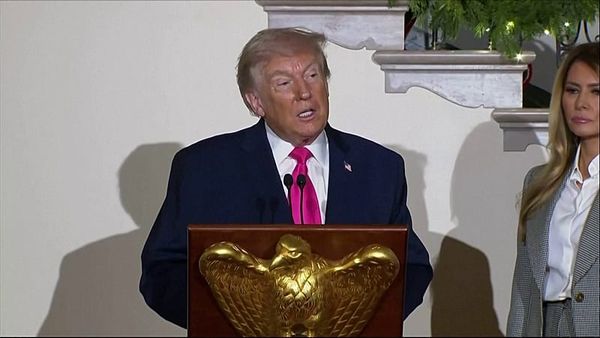
Florida residents will get the chance to vote on a ballot measure to enshrine abortion rights in the state constitution, the Florida state supreme court ruled on Monday, teeing up a dramatic electoral showdown over abortion access in a state that has become a haven for women fleeing southern abortion bans.
The decision is a victory for abortion rights activists – but one that was significantly tempered by a second decision also issued on Monday, in which the state supreme court ruled to uphold Florida’s 15-week abortion ban. That decision paves the way for a separate six-week abortion ban – passed in 2023 but on hold pending the outcome of the case over the 15-week ban – to take effect.
The six-week ban will take effect in 30 days.
In upholding the 15-week ban, which was passed shortly before the US supreme court overturned Roe v Wade in 2022, the Florida state supreme court upended a 1989 decision that had found that women had the right to an abortion through the second trimester of pregnancy, thanks to privacy protections in the state constitution.
“The privacy clause of the Florida constitution does not mention abortion or include a word or phrase that clearly incorporates it. Era-appropriate dictionary definitions and contextual clues suggest that abortion does not naturally fit within the rights at issue,” reads the majority opinion, which was written by Justice Jamie Grosshans. “Reliable historical sources, like the technical meaning of the terms contained in the provision, the origin of the amendment, and the framing of the public debate, similarly do not support a conclusion that abortion should be read into the provision’s text.”
Grosshans was appointed by Florida’s current governor, Republican Ron DeSantis. In total, five of the seven justices on the Florida state supreme court were appointed by Republicans.
The fight over the constitutional amendment will now become even more urgent – if it passes, it will restore the abortion access set to be curtailed by the six-week ban. Under the constitutional amendment proposed by the ballot measure, access to abortion would be protected until fetal viability, which is generally around 24 weeks of pregnancy, as well as in cases when a doctor deems an abortion necessary to protect a patient’s health.
In the meantime, the ban is set to have a staggering impact on abortion access across the southern US, since people outside Florida rely heavily on the state for abortions. Almost 10,000 people who received abortions in Florida in 2023 hailed from outside Florida, according to a recent analysis by the Guttmacher Institute. That’s more than double the out-of-state abortion patients seen in Florida in 2020, before Roe fell.
Ashley Moody, Florida’s Republican attorney general, had asked Florida’s supreme court to stop the ballot measure from reaching voters, arguing that, in part, the term “viability” can have too many meanings.
The language of the ballot measure summary, Moody had argued in court documents, is so vague as to be misleading and is part of a “similar overall design to lay ticking time bombs that will enable abortion proponents later to argue that the amendment has a much broader meaning than voters would ever have thought”. By allowing healthcare providers to determine if an abortion is necessary to protect a patient’s health or whether a fetus has reached viability, the ballot measure would strip power away from the government – and does not clearly convey that shift in power to voters, Moody argued in court records.
In a “per curiam” opinion – meaning it was not authored by a specific judge – the Florida justices rejected that argument.
“That the proposed amendment’s principal goal and chief purpose is to limit government interference with abortion is plainly stated in terms that clearly and unambiguously reflect the text of the proposed amendment,” they wrote. “And the broad sweep of this proposed amendment is obvious in the language of the summary. Denying this requires a flight from reality.”
Almost 1 million Florida voters signed petitions to add the measure to the November ballot, according to an unofficial tally from the Florida division of elections.
Abortion-related ballot measures are currently in the works in about a dozen states across the country, including swing states such as Arizona and Nevada. Democrats are hoping that referendums to protect abortion rights will amp up turnout and help propel their candidates to victory, since abortion rights have become a winning electoral issue after the downfall of Roe v Wade in 2022. Outrage over the fall of Roe was credited with lessening a much-heralding “red wave” in the 2022 elections, while voters have backed abortion rights even in deep-red states like Kansas and Kentucky.
“The Florida supreme court was right to let the ballot initiative go before voters – and it’s a good thing they did because voters will need to head to the polls to undo the damage the court is causing with its decision to allow an extreme ban on abortion to go into effect,” Mini Timmaraju, Reproductive Freedom for All president, said in a statement on Monday. “This is devastating news for access to abortion care in the state and the entire south.”







